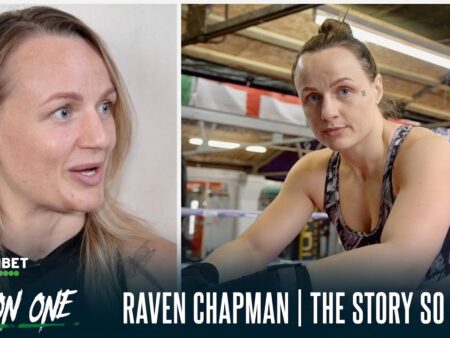“We hope they refuse… otherwise, we’ll have to resort to robberies.” Not the typical boardroom banter one expects from top-tier football club executives, yet these are the very words reportedly exchanged by leading figures at Napoli during the intricate negotiations for star striker Victor Osimhen. What sounds like a plot twist from a B-grade heist movie is, in fact, at the heart of a re-ignited legal firestorm surrounding one of Serie A’s most high-profile transfers.
The €70 Million Question: More Than Just Football Talent?
The acquisition of Victor Osimhen from Lille to Napoli for a reported €70 million in 2020 was heralded as a major coup. However, recent revelations from Repubblica newspaper, citing intercepted communications, suggest this transfer was less about pure market value and more about creative accounting – a financial ballet danced on the tightrope of regulations. The core allegation? Napoli, in concert with Lille, allegedly inflated the transfer value by including several other players with seemingly exorbitant price tags.
To reach that hefty €70 million valuation, Napoli reportedly offloaded several lesser-known players to Lille. These included third-choice goalkeeper Orestis Karnezis and three young prospects: Luigi Liguori, Claudio Manzi, and Ciro Palmieri. Their collective valuation? A staggering €20 million. The twist? These players were almost immediately loaned out to Italian Serie C and D clubs, with some never even setting foot in France. A shrewd business move, or a transparent attempt to balance the books with inflated “capital gains”? The Italian Public Prosecutor`s office certainly leans towards the latter.
Whispers and Warnings: The Intercepted Chats
The most damning evidence comes from the reported chats between Napoli’s then-Sporting Director Cristiano Giuntoli, his deputy Giuseppe Pompilio, and CEO Andrea Chiavelli. The “robberies” quote, attributed to Chiavelli, reportedly came as the first draft agreements were being exchanged. A few minutes later, Giuntoli messaged Pompilio, seemingly cautious:
“I’m holding off,” Giuntoli reportedly wrote, “in fact, he told me to send it, hoping they don`t accept. I need to talk to Aurelio. What a terrorist.”
“This is psychological terrorism,” Pompilio allegedly replied.
Giuntoli pressed on, reportedly alluding to budget constraints: “Terrorist. Write that we were lucky Amrabat and Kumbulla didn`t want to come. Otherwise, we would have had to play the league with Petagna.” Pompilio, perhaps sensing the peril of written records, warned: “You shouldn’t write anything. Don’t leave traces in emails. Say whatever you want verbally.” A clear indication that the participants understood the delicate nature of their discussions, hinting at a desire to obscure the paper trail.
Lille`s Role: A Willing Accomplice or Desperate Partner?
The investigation suggests that Lille was not an unwitting participant. Financial Guard documents reportedly include an email from former Lille president Gerard Lopez, “proposing” to inflate the deal. His message, according to reports, read: “This, dear friends, allows you to pay a lower price than any other club, but with a nominal value that is necessary to close the deal.” A blunt assessment of how to circumvent financial constraints, perhaps, or a pragmatic solution to balance their own books.
Even within Lille, there were warning signs. Julien Mordacq, Lille’s administrative and legal director, reportedly messaged then-CEO Marc Ingla, cautioning about the “risks associated with this deal” due to “elements I verbally explained to you.” He added that “any particular deemed `strange` could generate questions about the entirety of these operations (agreements relating to 5 players) and real explanations and justifications would need to be provided.” It seems the internal alarms were indeed ringing, if perhaps not always heeded, leaving a potential trail of complicity.
The Double Standard: Sporting Absolution, Legal Scrutiny
Interestingly, while the legal wheels churn, the sporting justice system has already had its say. The Italian Football Federation (FIGC) shelved the case in 2022, effectively clearing Napoli of any sporting infractions related to the transfer. This dichotomy often raises eyebrows, highlighting the differing thresholds and remits of legal and sporting bodies. One might cynically suggest that football`s internal mechanisms sometimes prefer to keep its house in order without too much external interference.
However, the Public Prosecutor`s office in Naples, led by Lorenzo del Giudice and Giorgio Orano, sees things differently. They have requested an indictment for Napoli president Aurelio De Laurentiis and CEO Chiavelli for false accounting, with a preliminary hearing set for November 6. For them, the internal communications and inflated valuations constitute more than mere “football dynamics” – they point to potential criminal intent.
Napoli`s Defense: “Normal Dynamics” and “Extrapolated Phrases”
Napoli’s defensive legal team—composed of Gino Fabio Fulgeri, Gaetano Scalise, and Lorenzo Contrada—has vigorously pushed back. In a statement, they claimed that the situation “does not reveal an illicit scheme, but rather the normal dynamics of a negotiation related to the buying and selling of footballers, physiological in the sector and devoid of criminally relevant profiles.”
They also expressed “astonishment” at the media`s dissemination of what should have been confidential investigative documents, arguing this violates legal prohibitions. The lawyers contend that the published phrases are “extrapolated from a much broader dialectical context,” and that the individuals involved have already provided “precise, clear, and convincing explanations” to prosecutors, rendering the quotes “totally irrelevant” as accusatory evidence. Essentially, a shrug of the shoulders and a suggestion that everyone should move along; nothing to see here, just business as usual in the intricate world of football transfers.
The Long Shadow of Financial Maneuvering in Football
The Osimhen case, much like similar “plusvalenza” (capital gains) investigations that have rocked other Italian clubs, underscores the constant tension between ambitious sporting projects and stringent financial regulations. In an era where Financial Fair Play (FFP) aims to curb reckless spending, clubs often find themselves navigating a murky landscape where the valuation of intangible assets – like player registrations – can be highly subjective and, as alleged here, open to manipulation.
As the legal battle unfolds, it serves as a stark reminder that beneath the glamorous surface of professional football, complex financial transactions are meticulously, and sometimes controversially, orchestrated. Whether these alleged “robberies” were indeed criminal acts or simply clever, albeit ethically dubious, accounting remains for the courts to decide. One thing is clear: the beautiful game is rarely played just on the pitch, and its financial intricacies are often far less beautiful.











